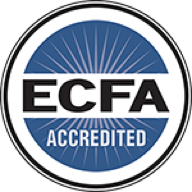Note: This article is the final of a series of three about critical issues in compensation and planning for pastors. The Fall 2019 issue of News & Notes included “Ministers’ Pay Essentials”, focusing on how ministers are paid and treated by the IRS for tax and Social Security/Medicare purposes (i.e. dual status, minister pays the SECA rate of 15.3%). (Article available here.)
In the Winter 2019-2020 issue I covered “Considering Opting Out of Social Security? Critical Issues to Review”. A decision by a minister to opt out is irrevocable and, by law, may be done only for theological and conscience reasons. (Article available here.)
In this issue, I’m describing some of the matters an opted-out minister should address.
Planning Needs
The minister opting out of Social Security has certified conscientious objection to “acceptance of any public insurance” based on compensation for services performed as a minister. Therefore, the following benefits of the federal system are not available and should be taken into consideration as needs to cover.
1. Retirement Income
Designed as “supplemental” income, Social Security (SS) payments are based on a formula that takes into account lifetime earnings on which SS taxes were paid. This formula is not devised to be a return on investment but instead to provide reliable basic income to all who have participated.
A minister who has opted out should put aside the equivalent of the Self Employment Contributions Act (SECA) tax in some retirement savings plan, in addition to the 10-15% rate recommended by financial planners for all SS-covered persons. Since the 15.3 % SECA rate is composed of 12.4% for Social Security and 2.9% for Medicare, it’s appropriate to set aside 12.4% or more for future retirement income in addition to the regular retirement contribution.
It’s also important to consider the need to provide for the equivalent of SS spousal benefits (up to 50% of the minister’s benefit) where a spouse has not qualified for a personal benefit that exceeds a spousal benefit.
2. Survivor’s Insurance
Social Security provides income benefits for minor children and caregiving spouse survivors upon death of a covered person.
An opted-out minister should obtain an appropriate level of life insurance to provide an adequate income stream for survivors. This means a higher level of insurance than if participating in SS.
3. Disability
Should an unexpected accident or debilitating injury take place and keep the minister from returning to work, it is even more important for an opted-out minister to have suitable disability insurance in place, since there would be no opportunity to qualify for Social Security Disability Insurance (SSDI).
4. Health Care
Private insurance is typically not available at age 65, since it is assumed the person will be covered by Medicare. However, it is possible to purchase Medicare by paying the Part A premium (currently $458 monthly) that is not charged to those who qualified through SS/Medicare tax payments.
If a minister’s spouse has qualified through paying SS/Medicare taxes for at least 40 calendar quarters, the minister can be covered as a spousal benefit.
Benefits from Other Employment
Some opted-out ministers qualified for SS benefits by paying SS/Medicare taxes for at least 40 quarters, either before entering ministry or through other employment while also working as a minister.
While the SS supplemental income will be smaller since it’s calculated for the top 35 years of SS-tax-paying income, including zero years, the minister will also be affected by a reduction due to the Windfall Elimination Provision (WEP). While the calculations are complex, the WEP reduces the benefit when a person has accumulated other retirement benefits (pension or retirement account) for income not covered by SS. If a person has 30 years of covered income, however, the WEP is not triggered.
Will There Be Opportunity to Revoke SS Exemption?
A decision to opt out of SS benefits is considered permanent. The last time Congress created a window for ministers to revoke the exemption they had been granted was in 2001. Recently, Congressman Kevin McCarthy (R-CA) introduced a bill to create a new two-year window for ministers to opt back in. At this time, it is not clear that there is momentum or support for his bill.
Summary
A decision to opt out of Social Security, which must be filed within the first two years of ministry, can have lifelong implications. Whether or not adequate consideration was made for the legitimate reason for filing for exemption, there are significant family needs and risks to plan for once an exemption goes into effect.

